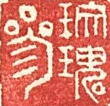Making assumptions and jumping to conclusions in medicine can be a dangerous thing. Without a proper diagnosis, how can one choose an appropriate treatment? But all too often, medical dogma overshadows clinical realities. Doctors can be quick to assume that a woman with a fibroid or cyst needs to have it removed, or that a man with gallstones should have surgery. But without understanding the mechanisms behind the formation of fibroids, cysts or gallstones, what can these procedures really accomplish except a temporary "solution" followed by iatrogenic side-effects such as scar tissue, blood loss and the sequelae of risks and symptoms post-surgeries?
No medicine is free from doctors jumping to conclusions. Acupuncturists and practitioners of Chinese medicine can fall prey to this as well should they not be diligently applying all the methods of diagnosis (i.e., Asking/Questioning, Looking, Listening and Smell, and of course, palpation of the pulse, abdomen, channels, etc.).
In the example of the woman with a cyst or fibroid, it is easy to jump to the conclusion that there is Qi and Blood stagnation as the primary cause (after all, there is a tumor). Trying to invigorate qi and blood circulation would logically follow as a treatment principle. But, often is the case that these women will not respond to this treatment, despite excellent acupuncture prescriptions and tailored herbal formulas. Why?
Dogma got in the way. Often these women actually suffer from fibroids as the body's way of attempting to counter a significant deficiency of Yin and fluids (which often has its root in the Kidneys, the controller of the reproductive organs amongst other things). The body, in its innate wisdom, attempts to hold on to its yin, and in so doing forms accumulations and stagnations which, over time, form cysts and tumors. So, what's the treatment? Nourish the yin. Correcting the circulation is more of a secondary consideration.
And what of the gallstone patient? Similar concerns. Why is the patient forming stones? Often, it is actually from a lack of healthy fat and cholesterol in the body. Once again, the innate wisdom tries to hold on to as much as it can. And, similarly, one needs to nourish the gall bladder, not cut it out. See this article for more.
It all starts and ends with a proper evaluation and diagnosis without preconceived notions about what a particular disease means. Every patient is a complex constellation of signs and symptoms that needs to be uncovered by a talented practitioner.
Friday, February 16, 2007
Organ Deprivation
Labels:
acupuncture,
chinese medicine,
health and healing,
herbal medicine,
herbs,
surgery
Subscribe to:
Post Comments (Atom)




No comments:
Post a Comment